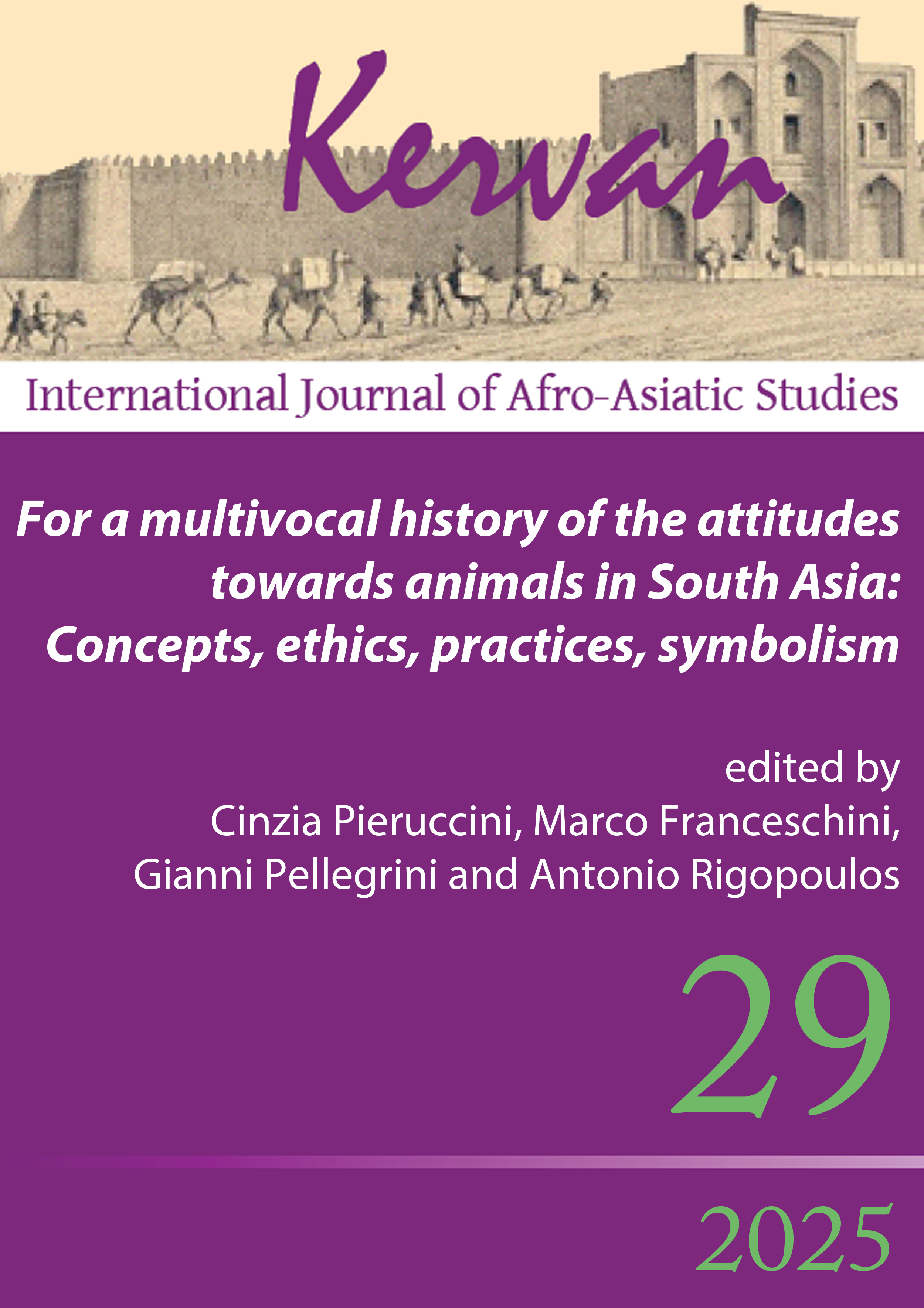Minimal inference: An inquiry into Navya-Nyāya in quest of nonhuman logic
DOI:
https://doi.org/10.13135/1825-263X/12244Abstract
Philosophical inquiry has historically centered on human experiences, including cognition. This focus has often led to the assumption that language, specifically human adult language (hL), is a prerequisite for complex reasoning. However, growing evidence suggests that non-human animals (NHAs) and non-linguistic humans exhibit significant inferential abilities, challenging this assumption. This paper explores the implications of these findings by examining the concept of ‘minimal inference’—reasoning that may occur independently of hL. It argues that a critical re-evaluation of the relationship between language and thought is necessary. The paper employs a multidisciplinary approach, combining philosophical analysis with insights from the South Asian Nyāya tradition. While Navya-Nyāya philosophy, with its emphasis on human experience and language, might initially seem anthropocentric, its focus on ‘relational logic’ and the primacy of perception offers a framework for understanding non-human cognition. By expanding Navya-Nyāya in this direction and examining its technicalities through the lens of contemporary research on NHAs’ cognition, this paper aims to contribute to a broader understanding of inference, exploring the possibility of non-linguistic or differently linguistic forms of reasoning. This includes investigating the role of counterfactuality, perception-based concepts, and the potential existence of a ‘minimal grammar’ in NHAs’ cognition.
Downloads
Downloads
Published
Issue
Section
License
Gli autori che pubblicano su Kervan accettano le seguenti condizioni:
- Gli autori mantengono i diritti sulla loro opera e cedono alla rivista il diritto di prima pubblicazione dell'opera, contemporaneamente licenziata sotto una Licenza Creative Commons - Attribuzione che permette ad altri di condividere l'opera indicando la paternità intellettuale e la prima pubblicazione su questa rivista.
- Gli autori possono aderire ad altri accordi di licenza non esclusiva per la distribuzione della versione dell'opera pubblicata (es. depositarla in un archivio istituzionale o pubblicarla in una monografia), a patto di indicare che la prima pubblicazione è avvenuta su questa rivista.


 The articles that have appeared on Kervan since 2016 are rated as Class A in the system of National Scientific Qualification (ASN, disciplines 10/N1 and 10/N3).
The articles that have appeared on Kervan since 2016 are rated as Class A in the system of National Scientific Qualification (ASN, disciplines 10/N1 and 10/N3). The journal has been approved for inclusion in DOAJ. The DOAJ listing of the journal is available at
The journal has been approved for inclusion in DOAJ. The DOAJ listing of the journal is available at  The journal has been approved for inclusion in ERIH PLUS. The ERIH PLUS listing of the journal is available at
The journal has been approved for inclusion in ERIH PLUS. The ERIH PLUS listing of the journal is available at  Kervan was just accepted for indexing in SCOPUS. This important milestone ensures that articles published in Kervan are easily found when searching for library, archives and Information science and it enables Kervan authors to keep track of how often their article has been cited by others.
Kervan was just accepted for indexing in SCOPUS. This important milestone ensures that articles published in Kervan are easily found when searching for library, archives and Information science and it enables Kervan authors to keep track of how often their article has been cited by others.
